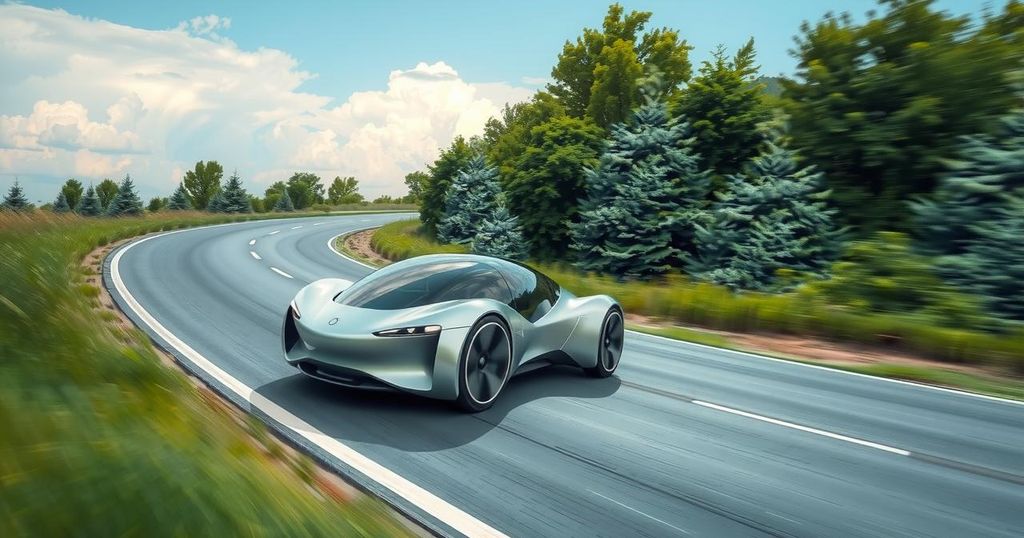BYD Surpasses Tesla: A New Era of Electric Vehicle Competition
BYD, a Chinese automaker, has surpassed Tesla in annual revenue, reporting $107 billion for 2024. Tesla is facing challenges due to declining global sales, outdated models, and a controversial brand image led by Elon Musk. Meanwhile, BYD continues to thrive with competitively priced electric vehicles. The competitive landscape may shift dramatically as BYD claims a larger market share.
Tesla is facing increasing competition from BYD, a Chinese automaker that has recently surpassed Tesla in annual revenue, reporting $107 billion for 2024. BYD has been expanding its market share globally, particularly in China, and has introduced a new charging system for its electric vehicles promising 250 miles of range after just five minutes of charging. Meanwhile, Tesla has been experiencing a decline in stock prices, with investors cautious due to decreased global sales and lack of product updates.
Tesla’s sales have dropped globally for the first time, and its market share is threatened by rising competitors. The company’s products have not undergone significant improvements for years, and a promised lower-cost model remains in limbo. Additionally, Tesla struggles to keep pace with advancements in autonomous driving technologies, where competitors like Google’s Waymo are leading.
Elon Musk’s political affiliations may also be affecting Tesla’s public image. Once popular among progressive consumers, Tesla now faces challenges due to Musk’s associations with controversial political figures, resulting in a tarnished brand reputation. The company’s stock shows signs of recovery after Musk encouraged employees to hold their shares, but it remains significantly below its previous highs.
Sales figures highlight Tesla’s struggles as well. While Chinese brands enjoy substantial growth, Tesla’s sales in Europe dramatically decreased by 44 percent, attributed in part to a delay in upgrading the Model Y. Additionally, there were significant losses in Germany attributed to Musk’s political stances, resulting in a 75 percent drop in sales.
BYD’s competitive edge lies in its ability to produce high-quality, tech-enhanced vehicles at lower prices. The new BYD Qin L EV, for instance, features specs comparable to the Tesla Model 3 at about half the price. As Tesla attempts to reclaim its position with a cheaper Model Y version expected in 2026, BYD continues to gain ground.
Ultimately, Elon Musk’s initial dismissal of BYD in 2011 now seems misguided, as the company not only surpassed Tesla in revenue but also transformed the electric vehicle market. Although Tesla remains the leading EV manufacturer in the U.S., trade barriers give it an advantage over competitors like BYD, which could challenge Musk significantly if such protections were lifted.
In summary, BYD’s rise poses a notable threat to Tesla’s market dominance, particularly as the Chinese automotive manufacturer surpasses Tesla in revenue and quality. Tesla’s recent challenges stem from declining sales, stagnant product updates, and a tarnished brand image linked to Elon Musk’s political affiliations. As BYD continues to offer competitively priced advanced vehicles, the landscape of the electric vehicle market may undergo significant changes, pushing Tesla to innovate rapidly to retain its competitive edge.
Original Source: www.egyptindependent.com








Post Comment